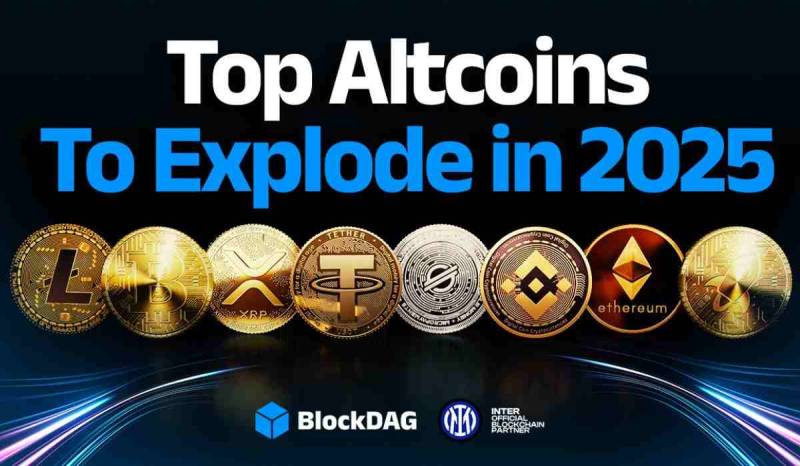 |
|
 |
|
 |
|
 |
|
 |
|
 |
|
 |
|
 |
|
 |
|
 |
|
 |
|
 |
|
 |
|
 |
|
 |
|
Cryptocurrency News Articles
Solana's Gokal Defends Memecoins Amidst Racism Concerns
Apr 29, 2024 at 09:08 am
Solana co-founder Raj Gokal dismisses concerns that memecoins are deterring serious builders in the crypto industry, countering that those unable to tolerate younger generations' usage of permissionless systems are unsuited for the field. Gokal's defense, however, highlights a paradox within Solana's recent surge in memecoin popularity, as the network has witnessed a rise in bigoted memecoins, prompting discussions on censorship resistance, permissionlessness, and the role of wallet developers in filtering offensive content.

Solana's Raj Gokal Spars with Critics, Defends Memecoins Amidst Racism Controversy
In a recent turn of events, concerns have escalated regarding the potential adverse effects of memecoins on the cryptocurrency ecosystem. Memecoins, a relatively novel asset class characterized by their perceived lack of inherent utility, have surprisingly emerged as a top-performing subsector, registering impressive gains and attracting substantial investor interest.
However, the meteoric rise of memecoins has not come without its critics. Several industry luminaries, including Ethereum co-founder Vitalik Buterin, have expressed apprehension about the impact of memecoins on the long-term prospects of cryptocurrencies, arguing that they may deter serious developers from pursuing meaningful projects.
Amidst these concerns, Solana's co-founder, Raj Gokal, has emerged as an outspoken defender of memecoins. Gokal's response to the critics, however, comes with a peculiar twist.
Gokal's Defense with a Caveat
In a playful jab, Gokal challenged the notion that memecoins drive away serious builders, mocking critics who express fragility over how younger generations choose to utilize permissionless systems for recreational purposes. He asserts that individuals easily rattled by such trivialities are ill-suited for the rigors of the cryptocurrency industry.
While Gokal's defense may resonate with some, it cannot be overlooked that Solana has emerged as a breeding ground for racist memecoins. The network hosts a plethora of such coins, with offensive slurs and stereotyped imagery becoming distressingly common on Solana decentralized exchanges (DEXs).
Austin Federa, Head of Strategy at the Solana Foundation, acknowledges this issue, proposing that wallet developers implement a "block list" feature to enable users to filter out offensive tokens. Federa draws an analogy to the internet, arguing that it is unreasonable to expect ISPs to censor content deemed offensive, as both the internet and cryptocurrencies operate on a largely permissionless basis.
Solana's Technical Strain and Memecoin Woes
The memecoin craze has not been without its consequences for the Solana blockchain. The influx of high-volume transactions associated with meme coins has led to network congestion, contributing to a high failure rate of transactions. Investigations by blockchain investigator ZachXBT have uncovered that at least 12 Solana-based memecoins have been abandoned in the past month, with developers absconding with investor funds totaling approximately $26.7 million.
Gokal's Dilemma: Balancing Innovation and Accountability
Gokal's defense of memecoins raises significant questions about the balance between innovation and accountability within the cryptocurrency ecosystem. While memecoins may provide a source of entertainment and quick profits for some, their potential to damage the reputation of the industry cannot be ignored.
The proliferation of racist memecoins on Solana highlights the challenges associated with maintaining a decentralized and censorship-resistant network while ensuring that it is not used to promote offensive and harmful content. Gokal's argument that younger generations should be allowed to "have fun" may hold some validity, but it must be balanced with the responsibility to prevent the network from becoming a haven for bigotry and intolerance.
Memecoins: A Test Case for the Crypto Industry
The rise of memecoins and the subsequent controversy surrounding them have brought to the forefront fundamental questions about the nature and purpose of cryptocurrencies. As the industry matures, it must grapple with the challenge of fostering innovation while simultaneously ensuring that the technology is not used for malicious or harmful purposes.
Solana's experience with memecoins provides a cautionary tale and a test case for the crypto industry. By addressing the issue of racist memecoins while also preserving the decentralized ethos of the network, Solana can establish a precedent for responsible innovation in the evolving cryptocurrency landscape.
Disclaimer:info@kdj.com
The information provided is not trading advice. kdj.com does not assume any responsibility for any investments made based on the information provided in this article. Cryptocurrencies are highly volatile and it is highly recommended that you invest with caution after thorough research!
If you believe that the content used on this website infringes your copyright, please contact us immediately (info@kdj.com) and we will delete it promptly.
-

- BlockDAG (BDAG) picks up speed, launching $30m grants program and partnering with SpaceDev to shape the next era of blockchain.
- Apr 11, 2025 at 10:10 am
- Learn what's shifting in Ethereum analysis, what's behind PI coin's fall, and how BlockDAG's SpaceDev deal and $30m grants shape the next era of blockchain.
-

-

-

-

-

-

- BlockDAG (BDAG), Litecoin (LTC), Filecoin (FIL), and Tron (TRX) Are Some of the Best Crypto Projects for 2025
- Apr 11, 2025 at 09:55 am
- Searching for the best crypto project for 2025 can be like hunting for treasures. While many initiatives appear and vanish, a select few exhibit remarkable durability.
-
![Bitcoin [BTC] Topped $88K After Trump's 'Less Severe' Tariff Plans Bitcoin [BTC] Topped $88K After Trump's 'Less Severe' Tariff Plans](/assets/pc/images/moren/280_160.png)
-

- BlockDAG (BDAG), StratoVM ($SVM), Solana (SOL), and Kaspa (KAS) Rank Among the Best Long-Term Cryptos to Buy the Dip
- Apr 11, 2025 at 09:50 am
- The market continues to shift, with popular coins seeing price drops due to recent global economic challenges. This has led many traders to shift focus to newer projects

















![🐢Super Mario World Koopa Troopa 100% 96⭐️ + Coin [Ao Vivo] 🐢Super Mario World Koopa Troopa 100% 96⭐️ + Coin [Ao Vivo]](/uploads/2025/04/10/cryptocurrencies-news/videos/super-mario-koopa-troopa-coin-ao-vivo/image-1.webp)









































![Bitcoin [BTC] Topped $88K After Trump's 'Less Severe' Tariff Plans Bitcoin [BTC] Topped $88K After Trump's 'Less Severe' Tariff Plans](/uploads/2025/03/26/cryptocurrencies-news/articles/bitcoin-btc-topped-k-trump-severe-tariff-plans/img-1_800_480.jpg)
